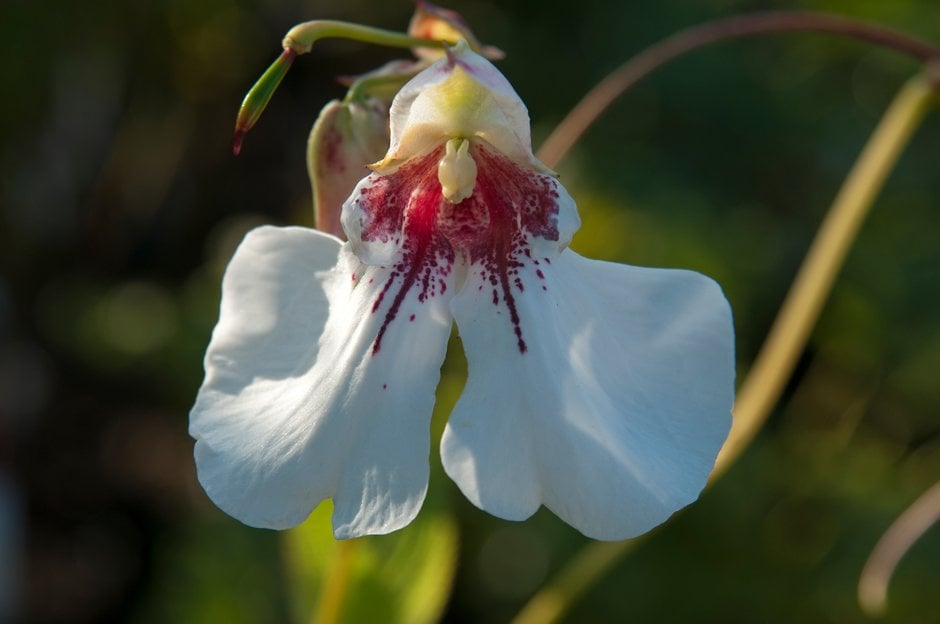Impatiens tinctoria
dyers busy lizzie
A vigorous, erect, tuberous perennial, to 2m tall, with fleshy stems and dark green, deeply-veined leaves up to 23cm long. Sprays of hooded and spurred, scented, white flowers up to 6cm across, with dark pink markings in the centre, are produced in summer and autumn
Size
Ultimate height
1.5–2.5 metresTime to ultimate height
2–5 yearsUltimate spread
0.5–1 metresGrowing conditions
Moisture
Moist but well–drainedpH
Acid, Alkaline, NeutralColour & scent
| Stem | Flower | Foliage | Fruit | |
| Spring | Green | |||
|---|---|---|---|---|
| Summer | Red White | Green | ||
| Autumn | Red White | Green | ||
| Winter |
Position
- Partial shade
Aspect
West–facing or East–facing or North–facing
Exposure
Sheltered Hardiness
H3Botanical details
- Family
- Balsaminaceae
- Native to GB / Ireland
- No
- Foliage
- Deciduous
- Habit
- Bushy
- Genus
Impatiens can be annuals or evergreen perennials, with fleshy stems bearing simple, toothed leaves and solitary or clustered, spurred, 5-petalled flowers
- Name status
Correct
- Plant range
- E Tropical Africa
How to grow
Cultivation
Grow in humus-rich, moist but well-drained soil in a sheltered position in partial shade. Mulch well in winter
Propagation
Propagate by seed
Suggested planting locations and garden types
- Cottage and informal garden
- Sub-tropical
- Flower borders and beds
Pruning
No pruning required other than to cut down stems at the end of the season
Pests
Generally problem free
Diseases
Generally problem free
Get involved
The RHS is the UK’s gardening charity, helping people and plants to grow - nurturing a healthier, happier world, one person and one plant at a time.
